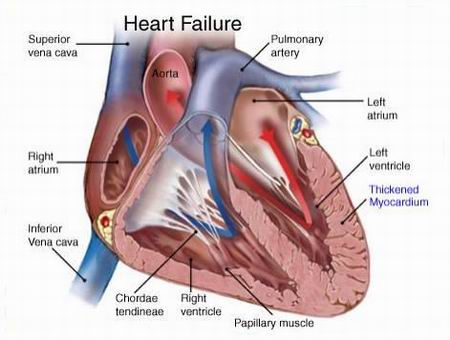
ORLANDO, FL — When community pharmacists are in the loop, patients experiencing a nascent episode of worsening heart failure could well be identified and their physicians alerted before it might otherwise have been detected and while there's an early opportunity to intervene, a small pilot study suggests[1].
Pharmacists at four pharmacies in the community, including within the Kroger chain of stores, were recruited to use a simple questionnaire in routine interactions with customers getting their heart-failure medications. The six questions were designed to detect any recent changes in the patients' heart-failure status, whether they were aware of them or not.
Of the 65 patients who participated, a surprising two-thirds gave responses that disclosed the first signs of worsening heart failure, raising suspicions enough for the pharmacists to take the next step, according to Dr Barry E Bleske (University of Michigan, Ann Arbor), who presented the analysis here at the Heart Failure Society of America 2013 Scientific Meeting .
Depending on the apparent likelihood of worsening symptoms, Bleske said in an interview, "The pharmacists might call probably their primary-care physician or their cardiologist." The physician would prescribe a change to the patient's medications right on the spot or perhaps ask the patient to come in for evaluation of possible worsening symptoms. But in the study, that happened for only seven of the 43 detected cases. More commonly, the pharmacist simply informed the patient directly and recommended an unscheduled physician visit.
The pharmacists took about 20 minutes to complete an online tutorial on how to apply the questionnaire, called The One-Minute Clinic for Heart Failure (TOM-C HF). During routine visits to pick up medications, patients were asked the questions aimed at uncovering any increasing edema, congestion, daytime dyspnea, paroxysmal nocturnal dyspnea, and other worsened signs or symptoms.
Proportion of 65 Patients Screened with the TOM-C HF Questionnaire Disclosing HF Signs or Symptoms
| Sign or symptom | % |
| Edema | 39 |
| Shortness of breath | 34 |
| Dizziness | 28 |
| Weight gain >5 lbs | 24 |
| Paroxysmal nocturnal dyspnea | 20 |
| Orthopnea | 8 |
The mostly yes-or-no questions included, "Since your last refill or visit to your doctor, have you had a change in weight of more than five pounds? Do you have shortness of breath? Do wake up short of breath at night?" Another question sought any changes in sleeping positions that might point to a shift in fluid status: "How many (more, the same, or fewer) pillows do you sleep on?" The answers of 43 patients (66%) disclosed an average of 1.5 symptoms or signs of worsening HF.
Important to the questionnaire's success, according to Bleske, is its brevity and simplicity. "It's a very easy tool we've created. In the community setting, it has to be done quickly so as not to interrupt their work and yet needs to be effective," he said. In the study, "80% of the pharmacist-patient interactions took one to five minutes." In practice, it wouldn't even have to be administered by a pharmacist. "You could train techs to do it, with oversight when something's detected."
The participating pharmacists themselves rated the TOM-C questionnaire as either "valuable" or "highly valuable" in >60% of interactions with their heart-failure patients, Bleske said. "They thought it was valuable to the patients and to themselves."
The community pharmacist isn't typically included in heart-failure disease-management programs, he said, "So what this shows is that community pharmacists can become an important part of disease management in heart failure and possibly early detection."
The study was funded by the Community Pharmacy Foundation. Bleske had no disclosures.
參考資料:
leske BE, Cornelius D, Ward JK, et al. Heart Failure Assessment at the Community Pharmacy Level: A Feasibility Pilot Study. Heart Failure Society of America 2012 Scientific Meeting; September 23, 2013; Orlando, FL. Abstract 126 .





 留言列表
留言列表
 線上藥物查詢
線上藥物查詢 